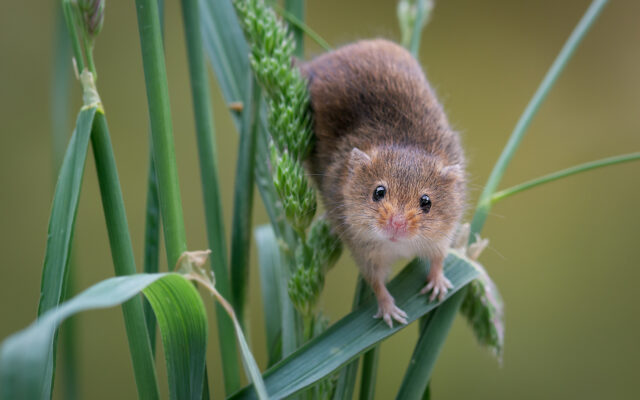Beware Of The Great Outdoors; Deer Mice Could Spread Hantavirus

Riverside County Public Health officials are urging people who frequent remote areas of the county to be careful, because hantavirus is out there.
One person has come down with the virus, the first human case in the county.
Since 1993, when testing for the virus began, there have been 90 confirmed cases in California.
The individual contracted the rare virus and was briefly hospitalized and is recovering at home.
Public health officials say the patient might have been exposed to deer mice droppings or urine in the Whitewater area. Officials emphasize hantavirus infection is rare, but it can cause serious illness. It can be fatal, but there are steps you can take to reduce exposure.
The virus is usually found in remote wilderness areas where deer mice droppings are left behind, such as cabins and rest areas. One way to prevent the virus is to regularly conduct thorough inspection and cleaning of rooms and cabins, keep deer mice and other rodents out of buildings, and maintain good housekeeping and sanitation levels to discourage rodent infestations.
It is important to seal holes inside and outside your home to prevent rodents from coming in, trap rodents that might already be in your home, and get rid of any possible food sources for rodents.
Hantavirus was first identified in the United States in 1993 and the virus has since been found throughout the U-S.
It is caused by a virus that individuals get through contact with the urine, droppings or saliva of infected deer mice. Breathing small particles of mouse urine or droppings that have been stirred up into the air is the most common means of acquiring infection. The illness starts one to six weeks after exposure with fever, headache, and muscle aches, and progresses rapidly to severe difficulty in breathing and, in some cases, death.
It is not transmitted from human to human.
When you are in wilderness areas or places that harbor mice, you can take the following steps to prevent infection:
- Avoid areas, especially indoors, where wild rodents are likely to have been present.
- Keep food in tightly sealed containers and store away from rodents.
- Keep rodents out of buildings by removing stacked wood, rubbish piles, and discarded junk from around homes and sealing any holes where rodents could enter.
- If you can clean your sleeping or living area, open windows to air out the areas for at least two hours before entering. Take care not to stir up dust. Wear plastic gloves and spray areas contaminated with rodent droppings and urine with a 10% bleach solution or other household disinfectants and wait at least 15 minutes before cleaning the area. Place the waste in double plastic bags, each tightly sealed, and discard in the trash. Wash hands thoroughly afterward.
- Do not touch or handle live rodents and wear gloves when handling dead rodents. Spray dead rodents with a disinfectant and dispose of in the same way as droppings. Wash hands thoroughly after handling dead rodents.
For additional information on preventing the spread of hantavirus, visit CDPH’s Hantavirus Cardiopulmonary Syndrome and the federal Centers for Disease Control and Prevention’s hantavirus website page.
very close image of a mouse balancing on the stems of wheat corn crops and staring forward.
Photo from Alpha Media Portland OR






